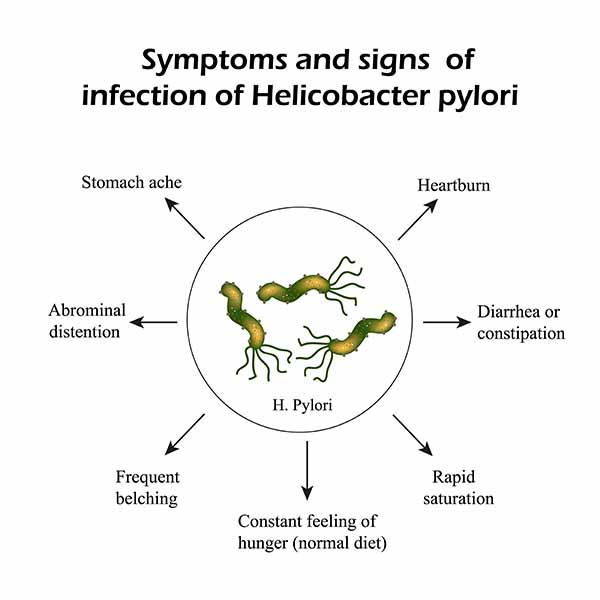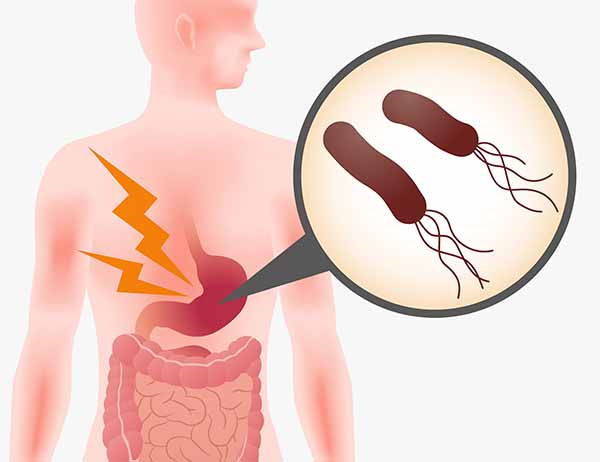How and why does Helicobacter get infected? What are the symptoms and what are the treatments?
Don't store avocado like this: it's dangerousWith Helicobacter pylori it indicates a bacterium which can colonize the inner lining of the stomach (gastric mucosa) resulting in possible infection. The name derives from his helix shape, while "pylori" refers to the terminal tract of the stomach (pylorus) which joins it to the small intestine, preferred site of infection of the bacterium. But how and why the contagion by Helicobacter? What are the symptoms and what are the treatments?
From local inflammation there is the risk of developing more serious diseases such as chronic gastritis, non-ulcer dyspepsia, peptic ulcer and stomach cancer. Fortunately, in most cases (and we are talking about 80-85%) the infection reveals asymptomatic or mild forms.
READ also: ANTIBIOTIC-RESISTANCE: HERE ARE THE 12 MOST DANGEROUS BACTERIA IN THE WORLD
Index
Cos'è l'Helicobacter pylori
Helicobacter pylori is a microorganism that has the unique ability to proliferate in the highly acidic environment of the stomach, leading to gastritis or ulcers or various inflammations in the stomach in the long run. It is a gram-negative bacterium responsible for a chronic infection of the gastric mucosa, where the same bacterium is able to trigger a slow inflammation that can damage the cells of the stomach lining.
Its spiral shape a few microns long and has the so-called "scourges”, That is, structures similar to tails with which it moves e it is placed in the gastric mucosa. It is no coincidence that the bacterium is closely linked to problems such as gastritis, chronic inflammation of the gastric mucosa. But Helicobacter pylori infection is also considered the main cause of gastric and duodenal ulcer and in some cases it can even develop stomach cancer.
To survive in the highly acidic environment of the stomach, the bacterium Helicobacter pylori produces an enzyme, theurea, which serves to increase the surrounding pH, penetrate the mucous membrane of the stomach and neutralize gastric acidity. When it settles in the stomach, it facilitates inflammation (gastritis) and erosion of the gastric mucosa (ulcer).
In summary, therefore, Helicobacter pylori is a bacterium that lurks on the mucous membrane of the stomach and manages to live in the extremely acidic environment, escaping the destructive action of gastric juices.
It is able to favor:
- gastritis
- gastric ulcer
- duodenal ulcer
- stomach cancer
Helicobacter pylori cause infection
From what is born and on how the infection is transmitted is still open to scientific debate. What seems certain is that it can spread through contaminated food or water. The most frequent infectious modality is the direct contagion from person to person: it is transmitted for via orally with direct contact or, for example, droplets of saliva, or for via fecal-oral route.
Some studies seem to show that the contact with stool or vomit of infected individuals can transmit Helicobacter pylori infection: it is therefore no coincidence that Helicobacter pylori infection is more widespread where there are conditions of poor environmental hygiene, typical of developing countries.
In summary, the major risk factors for Helicobacter pylori infection are:
- low level of hygiene
- coexistence with infected people
- consumption of polluted water or contaminated food with fecal material or manipulated with unwashed hands
- gravi food shortages during the first few years of life, including the transmission of infected breast milk
It is also estimated that the highest prevalence of Helicobacter is in elderly subjects of certain populations (African, American, Hispanic).
READ also: HOW TO WASH YOUR HANDS: 10 NATURAL REMEDIES FOR A CORRECT CLEANING
As for the risk of developing gastric diseases from Helicobacter pylori infection, the following are predisposing factors:
- smoking
- alcoholism
- chronic intake of non-steroidal anti-inflammatory drugs
Helicobacter pylori symptoms
In most cases, a Hlicobacter pylori infection is completely asymptomatic or has almost imperceptible symptoms. Only the gastric inflammatory process becomes intense can symptoms such as:
- heartburn that gets worse on an empty stomach
- abdominal pain
- nausea and vomit
- Diarrhea
- lack of appetite
- frequent belching
- swelling
- unexplained weight loss
- hungry in the morning
- your bottom line

As we said, Helicobacter Pylori can also lead to peptic ulcers (gastric or duodenal), the most common symptom of which is the pain and burning stomach, which subside after eating. But peptic ulcers can go as far as bleed causing hematemesis (vomit of blood) or melaena (stools that are black with blood or look like pitch).
READ also: BLOOD IN THE FAECES: ALL POSSIBLE CAUSES
Helicobacter pylori diagnosis
To get to a diagnosis of Helicobacter pylori infection doctors have at their disposal invasive techniques, such as gastroscopy, e non invasivesuch as blood sampling (antibody testing), urea breath test, or even stool analysis, often done in children.
- Gastroscopy: allows a direct view of the stomach and mucosa. During the examination, the doctor may also take biopsy fragments of the gastric mucosa and then analyze them under a microscope (histology)
- Blood analysis: on a blood sample which may reveal the presence of antibodies against Helicobacter Pylori
- Breath test, or breath test: the patient must drink a prepared solution, then the breath will be analyzed for any changes produced by the bacterium
- Stool examination: in this case, the antigens of the bacterium are searched for in a stool sample

Helicobacter pylori treatments and diet to follow
In all cases of Helicobacter pylori infection, traditional therapy involves the use of antibiotics combined with gastric pump inhibitor drugs (such as gastroprotective drugs).
If the infection presents any symptoms or, worse, gastritis or ulcer has already developed, an absolutely regular diet should be considered. This means, among other things, plan meals so that the stomach does not remain empty for too long and have smaller meals throughout the day.
Experts also recommend chew food slowly to aid digestion. It is also good do not eat too much, because overeating stimulates the production of gastric juices, but not even skip meals, because, in this case, the stomach is led to secrete acids that cannot be absorbed in the absence of food. Fatty foods, but also alcohol and chocolate tend to cause gastric juices to flow back, while foods that are too hot or too cold and salty foods tend to create a surplus of gastric secretion. Finally, it is better to cook with light cooking methods (steam, in a pan with short cooking, grill).
Among the allowed foods we find:
- low-fat milk
- low-fat yogurt
- white meat
- lean fish
- vegetables and fruit
On stomach diseases, you may also be interested in:
- GASTROESOPHAGEAL REFLUX: CAUSES, SYMPTOMS AND NATURAL REMEDIES
- HEALTH: THE 5 SPIES OF OUR BODY
- IATAL HERNIA: SYMPTOMS, CAUSES AND MOST EFFECTIVE REMEDIES
Instead, they should be avoided:
- fatty meats
- oily fish
- canned goods
- sodas
- alcohol
- coffee
- tea
- fried foods


























